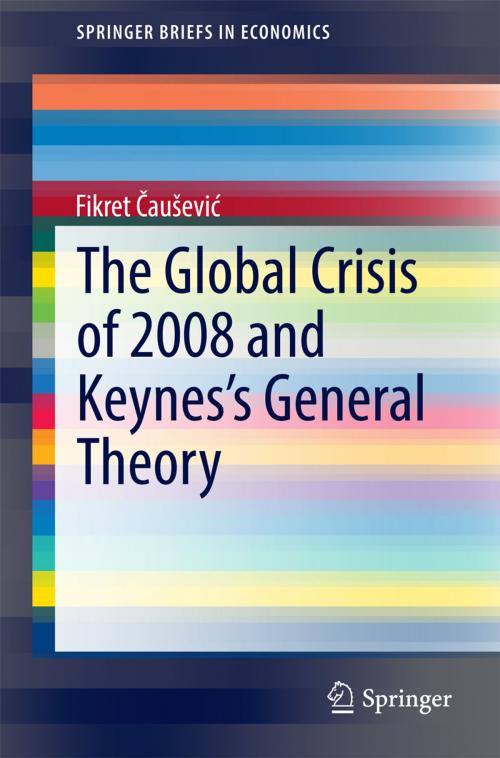The Global Crisis of 2008 and Keynes's General Theory
Nonfiction, Social & Cultural Studies, Political Science, Politics, Economic Policy, Business & Finance, Economics| Author: | Fikret Čaušević | ISBN: | 9783319114514 |
| Publisher: | Springer International Publishing | Publication: | September 16, 2014 |
| Imprint: | Springer | Language: | English |
| Author: | Fikret Čaušević |
| ISBN: | 9783319114514 |
| Publisher: | Springer International Publishing |
| Publication: | September 16, 2014 |
| Imprint: | Springer |
| Language: | English |
This book describes the international context and some of the factors that have weakened the influence of Keynesian economic thought. It illustrates economic responses offered by the new Keynesian school and the alternative perspective on the global crisis presented by the monetary circuit theory, with a special emphasis on Minsky’s financial instability hypothesis. The authors present a commentary on Keynes’s General Theory with an emphasis on his theory of the scarcity of capital, his analysis of the change in the structure of costs, and straightforward recommendation for a policy marked by very low interest, which he felt was needed to maintain full employment. Additionally, the book discusses major changes in the cost structure of globally active companies, resulting from the extremely intense international capital flows over the last three decades. The authors point out the need to redefine the open economy macroeconomics model, switching it from a world consisting of two major developed open economies to one consisting of two major open economies, one of which is developed and the other is developing.
This book describes the international context and some of the factors that have weakened the influence of Keynesian economic thought. It illustrates economic responses offered by the new Keynesian school and the alternative perspective on the global crisis presented by the monetary circuit theory, with a special emphasis on Minsky’s financial instability hypothesis. The authors present a commentary on Keynes’s General Theory with an emphasis on his theory of the scarcity of capital, his analysis of the change in the structure of costs, and straightforward recommendation for a policy marked by very low interest, which he felt was needed to maintain full employment. Additionally, the book discusses major changes in the cost structure of globally active companies, resulting from the extremely intense international capital flows over the last three decades. The authors point out the need to redefine the open economy macroeconomics model, switching it from a world consisting of two major developed open economies to one consisting of two major open economies, one of which is developed and the other is developing.















